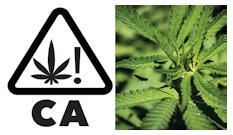
The Hemp Industries Association (HIA), along with South Carolina-based hemp company RE Botanicals, has filed another lawsuit against the U.S. Drug Enforcement Administration (DEA) for its recently proposed hemp regulations.
This is the second federal action taken by the plaintiffs, who last month filed a petition for review of the DEA’s August 21 interim final rule (IFR) in a federal appeals court.
The complaint for declaratory and injunctive relief filed Oct. 12 in the U.S. District Court for the District of Columbia alleges the DEA is attempting to regulate products derived from lawful hemp by misinterpreting the Agriculture Improvement Act of 2018 (the 2018 Farm Bill).
Specifically, the plaintiffs allege the DEA classifies intermediary hemp material (IHM) and waste hemp material (WHM)—two necessary and inevitable byproducts of hemp processing—as Schedule I controlled substances. The plaintiffs argue that Congress deliberately removed such commercial hemp activity from the DEA's jurisdiction when it legalized hemp production, including hemp processing, with the 2018 Farm Bill.
“I think a big part of [the latest lawsuit] is showing that the hemp industry is growing up," says an attorney familiar with the case who has also worked on hemp policy in the federal government. "They've managed to herd the best lawyers in the cannabis industry and hire some of the best ... lawyers outside of D.C. to fight this battle. The industry is telling the government—DEA in particular—'we're not just going to let you run roughshod over this whole industry anymore. We're not scared of you. We’re going to challenge you whenever you step outside the very broad bounds Congress set up for us. We're going to bring our best legal minds to this, and we're going to win.'”
The DEA’s interpretation of the 2018 Farm Bill "has serious, immediate, and irreparable consequences," the complaint states. "[A]ll hemp processors and manufacturers who work with and/or store IHM and/or WHM must now choose between ceasing to process, manufacture and/or store hemp; obtaining a Schedule I license from DEA; or risking criminal prosecution under the [Controlled Substances Act]. Given the centrality of hemp processing to the hemp industry’s supply chain, forcing processors to choose between the foregoing options would effectively destroy the entire hemp industry.”
RELATED: Latest Hemp Lawsuit Against DEA Highlights Ongoing Industry Conflict with the Agency
The plaintiffs are asking the court for a judicial determination that the definitions of hemp and hemp-derived tetrahydrocannabinol (THC) in the 2018 Farm Bill includes IHM and WHM, and that such materials are therefore not controlled substances. They are also asking for a determination that the DEA lacks any independent authority to regulate any aspect of hemp production, including IHM and WHM.
“The explanatory language accompanying the text of the IFR…reveals that DEA has an understanding of the definition of ‘hemp’ that is contrary to the 2018 Farm Bill’s plain language (and Congress’ intent) and effectively sweeps hemp into DEA’s purview,” the complaint states.
The plaintiffs are also seeking an injunction prohibiting the DEA from: enforcing the CSA as it relates to IHM and WHM; classifying such materials as Schedule I substances; and promulgating any rules relating to the production of hemp.
The complaint highlights the DEA's latest attempt to regulate hemp and, more broadly, cannabis, as well as the industry's latest attempt at preventing the agency from doing so.
“DEA’s latest jurisdictional overstep threatens every stage of the hemp production supply chain and jeopardizes the entire hemp industry,” the complaint says. “If allowed to stand, DEA’s intrusion will undermine a lynchpin of the new hemp economy that has created tens of thousands of new jobs and provided a lucrative new crop for America’s struggling farmers.”
Hemp Grower Editor Stephen Langel contributed to this report.
























